For Vanessa Jones, a new album checks a box
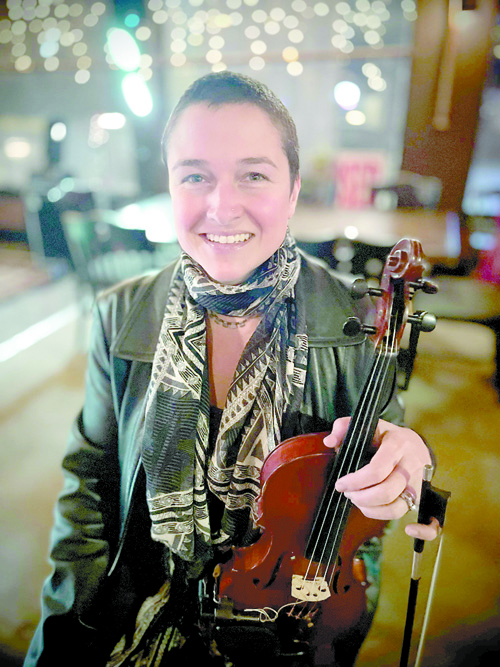
By Wayne E. Rivet
Staff Writer
Better late than never.
Vanessa Jones first picked up the violin at age 6, and quickly found a passion for music.
For the past 34 years, she was written a multitude of original songs, performed as a soloist and with different bands, and learned to play 14 different instruments.
One missing piece of her musical resume was releasing her own album.
The talented Bridgton singer and songwriter can now check that box. This Saturday, she officially releases her debut album, “40 Reasons.”
The News recently met with the talented artist for the following one-on-one interview:
Q. When did you first start playing?
VJ. When I was six years old, I started playing violin. I had seen violins before and I had been interested in them. But I thought it was only for adults. So, I saw a kid playing violin and I thought, wow, that’s great. My mom looked into it and got me violin lessons and I studied sort of under a fiddle teacher for two years. When I was eight, I started studying classical music. I did that for several years and played in orchestras.
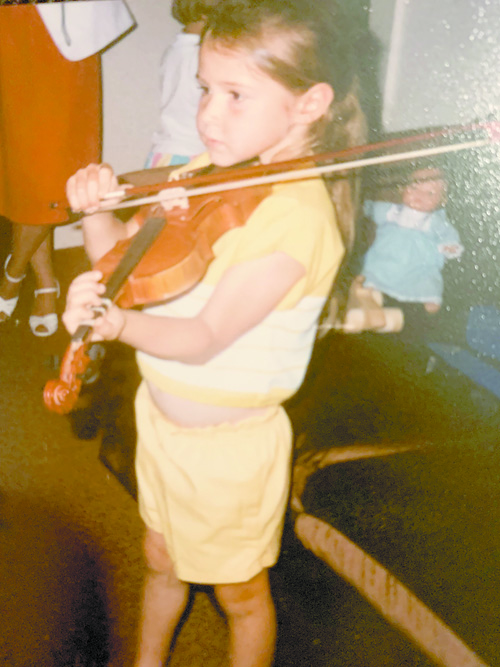
Q. What was the interest in violin?
VJ. Oftentimes, kids start looking at different things. They may play the flute or they may play sax or whatever. Like the violin is a little different.
Q. How did your music career proceed?
VJ. I put myself through college, playing violin at weddings and stuff on the weekend and teaching violin and beginner piano. I’m not a piano player, but I can teach beginner piano. Then, I completely burned myself out playing weddings. When I moved to Bridgeton 19 years ago, I didn’t tell anybody that I played because I was so burned out. Slowly word got out. I ended up playing with a five-piece jazz band for a few years and then played with a Celtic trio and then a bunch of things along the way. I’ve been writing music since I was a teenager. I found in my heart that’s what I want to be doing.
Q. So what other types of instruments do you play?
VJ. I play mandolin guitar, tenor guitar, octa, mandolin, accordion, cello, which I played on my album. I’m not a cello, but I wrote cello parts for five songs. I’ve taken cello workshops, but I’m not proficient at cello. I learn by watching YouTube. You can learn so much on YouTube. Absolutely. I have a lot of friends and professional connections that play a variety of instruments, so I’m able to pick people’s brains a lot. Networking is super helpful for learning specific things that you might not know or having them point you in a direction that you might look for more information online or whatever. The key to learning any instrument is just taking the time and sitting with the instrument and just really feeling out how to get the best sounds out of it is really important.
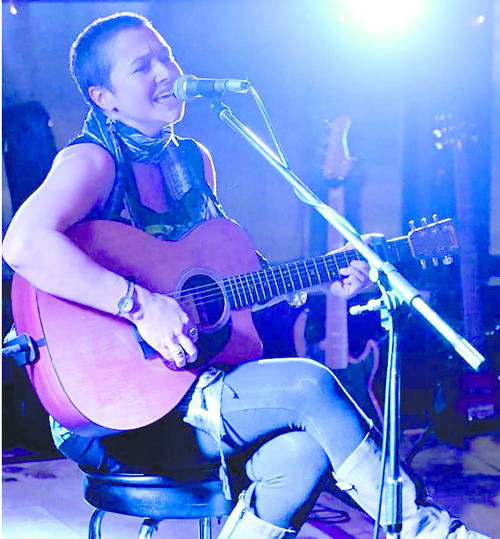
Q. Talk about your writing, what inspires you?
VJ. When I was a teenager, I would get an idea and I would write it down. Sometimes, it’s good and sometimes it’s not. But as you mature as a songwriter, you can take something that’s not good and make it a lot better, it’s like editing. I wrote as a conscious discipline for years. I mean, there is inspiration that you get an idea, but I wrote as a discipline, I just started to write almost as a compulsion.
I’m a lyricist first. Many people write opposite. They write their chord structure first. I write my lyrics and melody first, which has problems because then it’s a lot more work to fit it into a chord structure. I have to be a lot more conscious about making an interesting chord structure. I go to songwriting circles and I have what I call my dream team, which is a handful of musicians that I trust who I bounce my song ideas off. One human mind isn’t enough to think of everything. You can always improve.
Q. Before deciding what songs to use on the album, did you perform them and use audience response as an indicator whether to include them or not?
VJ. There’s something to be said for playing songs live a million times before recording them because you kind of feel out how audiences react to them. If you think you’ve got this great idea and you express it, it might not come across that way the way you’re thinking to another person. We do that with language, but I think even more so with music, because there are more layers. You have not only the words, but you also have the feeling that the music evokes. It’s almost like talking with more complexity.
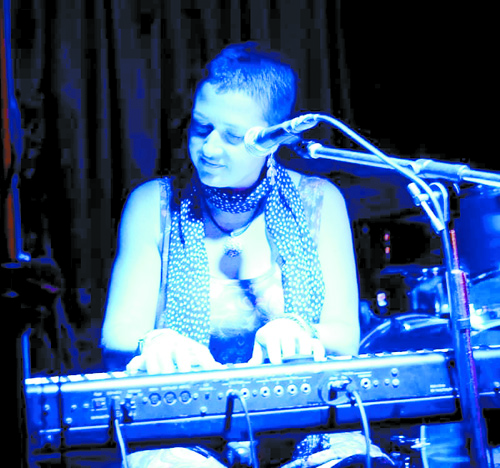
Q. Have you ever had a song where you thought it was really good, but then it really didn’t do so well in front of people?
VJ. All the time. Every audience is different. I’ve really started writing in a more intentionally, more general way. The song means something specific to me usually, but I want it to hit everybody where they are and have it mean whatever it needs to mean to them at that time. I don’t need to communicate the specific ideas that are in my head. I just need to communicate a feeling around specific ideas that are in my head and everybody can take that feeling and apply it to wherever they’re at.
Q. Has there been a song that you, that you performed and wrote and you got like a totally like, wild response, which you didn’t really expect?
VJ. That happens too. I think it is dependent on the specific audience. Sometimes, I’ll play a song and literally nobody will respond in any visible way. And then I’ll play it the next night for a different audience and four people will come up to me after and tell me how much they liked it or somebody will be crying in a positive way, or somebody else will just really intently listen.
Q. You mentioned that you played with different groups. How has that helped you evolve as an artist?
VJ. Every artist that you work with, you take little pieces of them with you. My biggest influences are the people that I’ve worked closely with for more extended periods of time. As primarily a violinist by training, I’m able to fit into a lot of different genres as, as a more of an accompanying so I can sit in with just about any different genre. But as far as my own musical career with my songwriting, I’m only in the past few years really making that my main focus. It’s been my main focus kind of all along. I’ve taken a lot more solo gigs this summer and I've been doing a lot more duo gigs the past couple of years so that I can promote my own music.
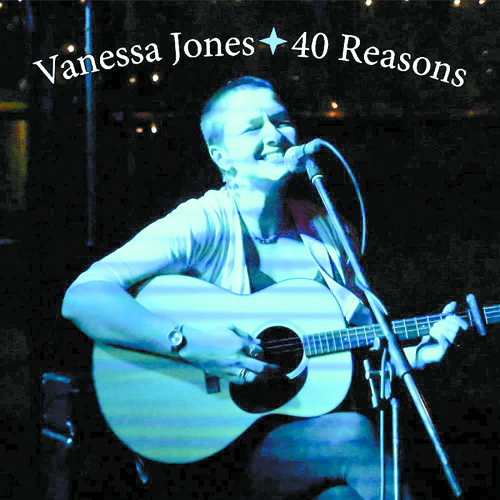
Q. Do you set goals regarding the number of songs you write in a day, week or month?
VJ. I have a goal, a songwriting goal for each month. One month in the fall, I forced myself to only write on sixth string guitar rather than writing on mandolin. If you limit yourself to one instrument, you’re gonna come up with different chords and different ideas. You can ask people for two random words and then write a song around those two words. There’s all different kinds of ways to force yourself into writing something different than you’ve written before. How do I get past writer’s block? I have hundreds and hundreds of unfinished songs or just things that I’ve started that never really finished. I’ll read a bunch of those and that sometimes helps me, or I'll just sit with an instrument and play, just kind of play stuff until I start thinking of something. I have to write because internally I’m compelled to.
Q. Talk about the new album.
VJ. This album is called ‘40 Reasons,’ and I’m releasing it on my 40th birthday. It’s sort of about the different experiences that have gotten me through 40 years. When I set out to make this album last summer, early fall, I wrote down the 12 songs that I had in mind for it. And I think only six or seven of those made it onto the album. And then I wrote more.
Q. What’s typically the number?
VJ. Well, CDs are getting shorter and shorter really. So really many people I know are releasing CDs with between six and eight songs on them. Yeah. I wanted to do 12 because I’m always believing ‘go big or go home.’ There were a couple that I thought about cutting at the last minute, but I ended up leaving them on because the album is a snapshot in time of who I am as an artist on those days that I was in the studio (Baked Beans in Harrison). When you’re making all the decisions and you’re driving the whole project, it’s a whole different experience. I had some nervousness. There’s a lot of pressure. My main thought was, why didn’t I do this earlier? You know? I think if I had done it 10 years earlier or more I would’ve grown more rapidly in the ways that I’ve grown over the past year. I just have so many things to do in my life. There’s never a good time to release an album. Like, there’s never a good time to have a baby. You take it on and you’re like, you gotta do this. I spent five to six days in studio.
Q. What do you really, really like about this album?
VJ. I like the multi-instrumentalism because I love acoustic folk instruments. It’s fulfilling playing all the instrumental parts the way that I want them played.
Q. Relieved once you were done?
VJ. When I was driving home from the studio after laying the last tracks, I had nine instruments in my car. I remember driving down Dugway Road and looking back at all the instruments and just feeling like I had given birth. It was like relief, like whew, that’s done. It just freed up so much brain capacity to get those ideas recorded and I knew that I didn’t have to carry those ideas in that specific way anymore because I’ll never have to perform them that way again. If I had it to do over again, I would finish four songs and then I would start the next four and finish those.
Q. Will there be a second album?
VJ. Yes. Probably about five songs that I had intended for this album didn't make it on, might emerge as singles or as an album project in the future. I have quite a few in the works. There’s tons of other stuff that I may release at some point.
Q. What do you enjoy most about performing?
VJ. I like the connection performing with other musicians, and the connection with audiences. I feel every live performance is an opportunity to communicate with other human beings. I think as a society we value connection with other people We’re designed for connection and I think music is a way to do that. I think people are starving for human connection. Music is one way to provide that in a positive way.


